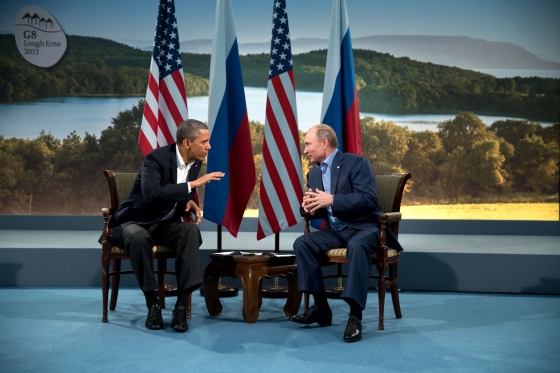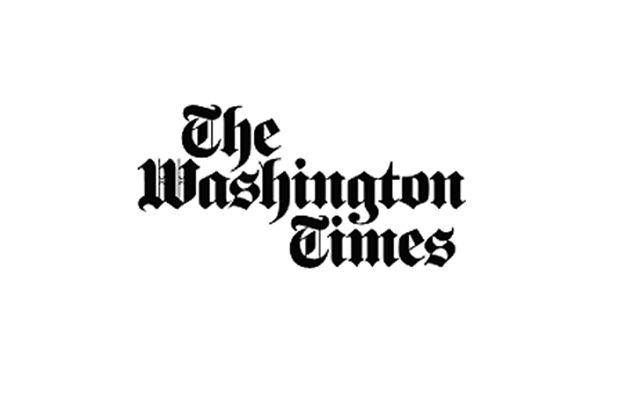
Ani Torossian
Ani Torossian is working toward her master's degree in political science at Columbia University, where she focuses on international relations, U.S.-Russian relations and U.S. foreign policy. Born in Yerevan and raised in Moscow, she holds a bachelor's degree in political science from the University of California, Los Angeles. She works with the editorial team at the Foreign Policy Association on Great Decisions 2014.
Over the weekend, the New York Times published an article titled "In Cold War Echo, Obama Strategy Writes Off Putin.”
It caught my eye because it used the catchphrase – Cold War – that politicians as policymakers, journalists as conveyers and we as an audience have grown familiar with. Literary devices go a long way in politics. Hillary Clinton’s historically inept Putin-as-Hitler analogy effectively plays to the policy tune that Washington thinks it needs to adopt toward the Kremlin. Columnists and news organizations in search of the most clicks and likes on the Internet flock to dramatic albeit unoriginal headlines such as"Cold War-style Conflict hits Ukraine’s Crimea” and "Obama Finds Cold War Echoes in Face-Off with Putin.” Readers fall on the receiving end of this cycle of instant gratification through familiar rhetoric.
But they are also short-handed in the midst of a one-toned, simplistic and superficial narrative of Russia and Putin. The backdrop matters. If the aim is to mystify Russia, then job well done. If the aim is to engage in a proper discussion of the on-the-ground political realities, then an exchange that involves a comparison of Russia to the Cold War and superiority complexes is futile. How reporters help craft a politicized narrative is worth noting. Before writing about Putin through the lens of rhetorically charged terms such as autocrat, dictator, imperial heir and so on, it is important to consider and understand the context in which current events unfold. A historical lens should not be discounted for the sake of rhetoric.
Russia experienced a political collapse, immediately followed by an economic collapse in pursuit of the democratization and privatization schemes coming from U.S. economic advisors. In this context, there is nothing shocking about Putin’s rise and what Russia is currently dealing with. There is, however, something both shocking and calculated about Clintonesque comparisons of Putin to Hitler. The Obama administration’s own Michael McFaul, who served as ambassador to the Russian Federation from 2012 until 2014 and was the mastermind behind the failed "reset” policy with Russia, now professes a policy approach to isolate Russia rather than to engage it.
I met Michael McFaul in 2012 when I was a delegate at the Stanford U.S.-Russia Forum, a student-run initiative that brings together students from Russia and the United States to participate in cross-country conferences. It was created to diminish the stereotypes and perceptions students from both countries had of one another. The aim of the program – which wrapped up its sixth year with a conference at Stanford University this past weekend – is to work on collaborative policy proposals that might bridge gaps and foster cooperation between Russians and Americans.
It is disheartening to read about McFaul’s proposal to confront and isolate "Putin’s Russia” because it makes cooperation at the civil society level between Russians and Americans that much more difficult.
It is even more difficult to read about rupturing ties between the Kremlin and the Obama administration, along with the latter’s lapse back to George Kennan’s containment strategy.
But it becomes important to invest social capital where political capital is no longer expended. Student exchanges such as the Stanford U.S.-Russia Forum, or SURF, relight the debate about U.S.-Russia relations in the modern sphere. For instance, students from SURF this year explored and built policy recommendations on topics such as American and Russian cooperation in the nuclear energy market, U.S. investments in Russian pharmaceuticals and Russian civil aviation. Other areas such as the agricultural, food and climate sectors are also important to keep in mind.
It is worthwhile to applaud the student generation that does not give in to fleeting rhetoric about U.S.-Russia relations and chooses the more challenging, forward-thinking route free of obsolete phrases.
It might teach politicians and the media a thing or two about progressive thought.



_jpg/250px-ElbeDay1945_(NARA_ww2-121).jpg)








